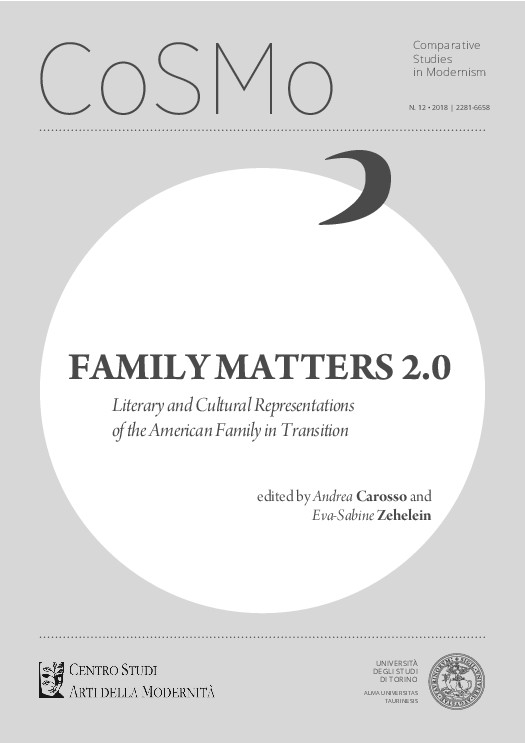“Happy Together?”: Envisioning the American Family in the Long 1950s
DOI:
https://doi.org/10.13135/2281-6658/2662Keywords:
Cultura nord-americanaAbstract
As the nuclear, middle-class American family reached its apotheosis in what I call "the Long 1950s", an almost mythical period of post-war national prosperity, it became the bedrock of the Cold War consensus, charged with political and symbolic values that were often at odds with its realities. This paper first analyzes the forces at play in shaping the myth of family as "happy home corporation" in America, which included media pressure, changing social, demographic and economic conditions as well regressive views of gender and sexual roles, especially as emerging from bestselling marriage and child-care manuals. It then looks at the way in which dissenting evidence from those Long 1950s, especially in the area of sexual behaviors as well as juvenile rebellion, showed the American family caught in a state of flux, which was at odds with the imperatives of the Cold War consensus.
Downloads
Downloads
Published
Issue
Section
License
Authors keep the copyrights for their work and give the journal the work’s first publication copyright, which is at the same time licensed under a Creative Commons License – Attribution, which in turn allows other parties to share the work with an acknowledgement of the work's authorship and initial publication in this journal.
Content Licence

You are free to copy, distribute and transmit the work, and to adapt the work. You must attribute the work in the manner specified by the author or licensor (but not in any way that suggests that they endorse you or your use of the work).
Metadata licence

CoSMo published articles metadata are dedicated to the public domain by waiving all publisher's rights to the work worldwide under copyright law, including all related and neighboring rights, to the extent allowed by law.
You can copy, modify, distribute and perform the work, even for commercial purposes, all without asking permission.






